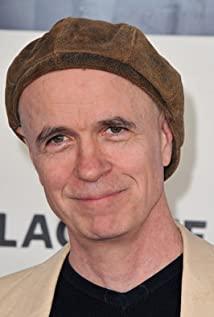As the first stop-motion animation written by Charlie Kaufman, "Disorder" has an irreplaceable position. He explores selfishness and independent personality, as well as the morbid phenomenon and atmosphere existing in society. Most importantly, he puts the characters inside The psychological activities of the film are expressed in the form of audio-visual language, which makes the whole film almost magical, but very "real".
Before I introduced the work "Eternal Sunshine of a Beautiful Mind" written by Charlie Kaufman, I once discussed the relationship between the "id " and " ego " of the characters. The id is the subjective manifestation of the subconscious in the fundamental sense. , while the self is an objective manifestation in a social form - one is subjective and the other is objective . In the film "The Eternal Sunshine of a Beautiful Mind", the male protagonist Joel pursues himself and his girlfriend Clementine in his "dream" . The fragment of " Ting memory" is actually a subjective manifestation of self-consciousness ( id ).
In this stop-motion animation "Disorder", we found that it is difficult to find a relatively objective presentation. Unlike "The Eternal Sunshine of a Beautiful Mind", "Disorder" uses a "sandwich" narrative form , what is the "sandwich" narrative form?
We know that personality is characterized by diversity. In daily life, we will meet many people with diverse personalities. This personality is not the multiple personalities seen in suspense films, but recessive and dominant personalities . .
The hidden personality corresponds to the id .
The dominant personality corresponds to the self .
In this film, there is actually another personality, the same dominant personality - Michael Stone , who gave a speech on stage - this is the manifestation of the personal personality superego in the film.
The superego has two important parts: one is the ego ideal, which is the standard that requires one's behavior to conform to one's own ideal; the other is the conscience, which is the limit that stipulates one's behavior from making mistakes. Therefore, the superego is the moral part of the personality structure, and from the point of view of the principles governing human nature, the superego is governed by the principle of perfection. (Refer to Freud's "The Interpretation of Dreams")
In the audio-visual language of this film, we can find such a rule that when it comes to the social status quo and the most shallow narrative content (such as the narrative content of Michael Stone and the taxi driver), the expression of the film is Clear and unambiguous. But if you look at it from another angle, there are many fragments where the id and the ego are confused in the process of storytelling.
In the first montage, we heard two male voices from the voice-over of the picture, but friends who are familiar with this work should still remember that this is a dialogue between a mother and a child.
Why use such a dubbing method, there is a lack of female voice actors?
At the back, the purpose of the director's arrangement is generally clear. Through such a form of expression, the director establishes the ideology of the entire work in " the confrontation between the id and the self ". In this way, what the whole film discusses is no longer just the "morality" and "human nature" mentioned by many people. The most important theme that "Disorder" will show is confrontation. This confrontation is a confrontation that exists in the heart. At the same time, because of the special carrier of "stop motion animation", the abstract consciousness to be expressed in the film has been transformed into a figurative and intense dramatic conflict.
In the film, everyone is a puppet under the control of life, relying on their own " personality " (refer to Carl Jung 's related works) to exist, such as taxi drivers. Each city is replaced by a specific product or noun , becoming a formal symbol.
The hotel where the protagonist Michael Stone stayed is called THE FREGOLI. FREGOLI is a mental illness. Its Chinese name is Fregoli Delusion Syndrome (Fregoli Delusion Syndrome). The most obvious symptom of this disease is avatar delusion .
What is a stand-in delusion?
There are more detailed answers on Baidu Encyclopedia. I mainly analyze the symptoms of this disease shown in the film: In the first half of the film "Disorder", except for the protagonist Michael Stone, everyone is the protagonist's subjective consciousness. The display of a single personality, in the eyes of the protagonist, everyone is a personality (Single dog funny face), everyone is a stand-in for a personality - this is most strongly expressed in Michael Stone's dream ( Dreams are the satisfaction of desires, so the process of Stone's dreaming is actually the process of his subconscious display).
The protagonist Michael Stone is looking for a different personality in a world surrounded by a single personality , which is what he subjectively understands as "soulmate".
Patients attempt to make sense of what they see as a chaotic world, but contradictory perceptions cause them to hesitate about the boundaries between correct and delusional interpretations of things. The delusion is based on a love-hate conflict that can only be resolved by transferring the conflicting feelings to the imaginary double. Guze (1988)
In the world of surrogate syndrome patients, there is no difference between familiarity and unfamiliarity. There are only two concepts of same and different . At the same time, the whole movie is also a process of searching, such as the reunion of Michael Stone and his first love girlfriend. , which is an expression of the search for the past self.
When he heard lisa 's female voice in the bathroom , Michael Stone was very excited. Lisa also represented the only expression of different personalities. In Michael Stone's inner world, Lisa could be said to be in addition to Michael Stone. , the only different personality. Michael's search finally came to an end, but after a warm night, Michael Stone found that Lisa's " personality " began to become the same as everyone else's. The most important thing is (to make a point), in the dream about Michael Stone in the film, there is a presentation about the mask. This fragment can only be represented by dreams. Let’s briefly analyze its meaning: First of all, we know that dreams are a collection of subconscious minds and a manifestation of the id, while the protagonist in the dream itself represents a subjective sense. self.
In Charlie Kaufman's work "Becoming Markovich", in the segment about entering Markovich into his own brain, there is a display of narcissism-innumerable Markovich piles up in Markovich In Covic's mind, it means that in Markovic's mind there is only himself.
In this dream in "Disorder", Stone found his "mask" on the ground. After being surprised, he picked it up and put it back on his face, which is the true portrayal of the "personality mask" mentioned by Carl Jung. The process of picking up the mask means giving up and distrusting oneself.
Don't trust what?
We know that Michael Stone is a well-known figure. His mask is also the guarantee of the "superego". Without the mask, people will not know that he is Michael Stone, and the symbol of Michael Stone will be lost. Coding, he is nothing.
Like the movie "Becoming Malkovich", what Charlie Kaufman wants to explore is still the selfishness in human nature.
At the same time, on the basis of this discussion, elements such as mental illness, social reflection, one-night stands, and the meaning of life are added, which makes the whole film a lot fuller.
This is a lonely film, and at the same time, it is also a film that can easily make people irritable. After watching it three times, I still have most of the chills in my heart.
After Michael Stone got home, Michael's wife and son went to entertain guests, and Michael Stone sat alone on the stairs, listening to a Japanese geisha toy (female voice) from an adult store sing Momotaro's song , I am full of emotion, the voice of the machine is all female, but the living person is a voice, which is undoubtedly an irony of human nature.
At the end of the film, a relatively sunny ending is given, in which Lisa wrote to Michael Stone's psychology, expressing his positive attitude towards the future, and at the same time expressing his gratitude to Michael Stone for the happy time he gave him, perhaps In a short time, Michael Stone has returned to normal, or it may be more serious than before, but this will not affect life itself. Although Michael Stone is a selfish person, he is also a victim of life. , The performance of the film gives the patient the opportunity to express his thoughts. It is difficult for us to understand the inner world of a person suffering from mental illness. Similarly, it is difficult for us to understand the thoughts of others.
Perhaps what Charlie Kaufman wants to express is just the inner struggle of a simple substitute syndrome patient.
"Momotaro, Momotaro / Those millet dumplings on your waist / Won't you give me one? / I'll give you one, I'll give you one / From now, on a quest to conquer the ogres / If you come with me, I'll give you one" (a song sung by a Japanese geisha toy)
View more about Anomalisa reviews











